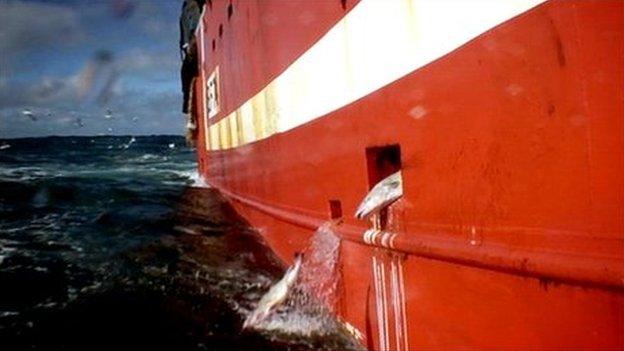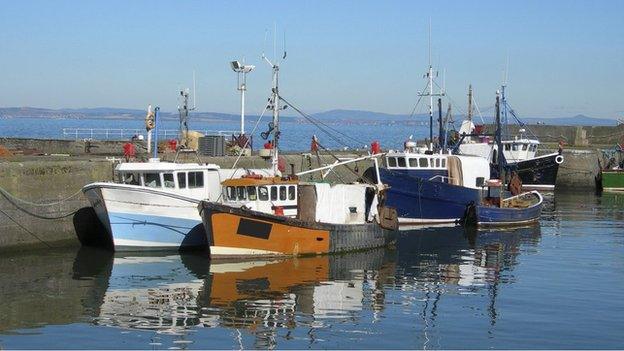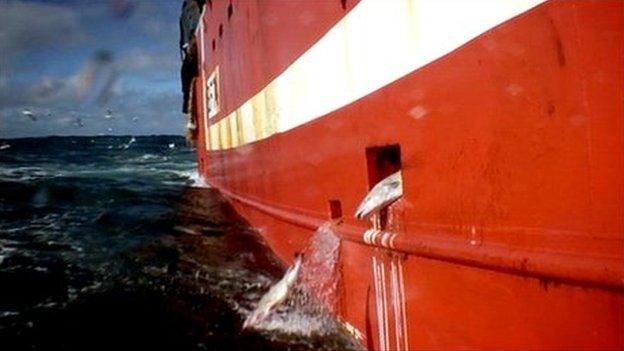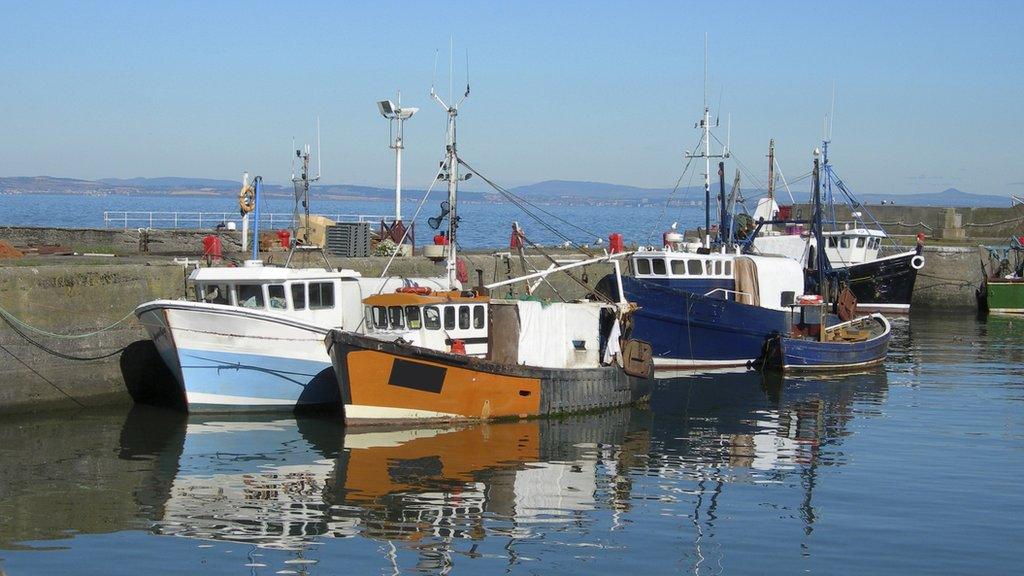Fishing boat discards 'hard to comply with'
- Published

New discard rules started to come into force in January
A ban on discarding unwanted fish into the sea will be difficult to comply with, researchers have claimed.
Boats having to land unwanted fish caught in their nets started being phased in at the start of the year, under European laws.
Throwing dead fish back into the sea had increased due to strict EU quotas on which fish could be landed in a bid to conserve stocks.
The University of Strathclyde said it would pose the industry problems.
The ban is part of a new deal on fishing quotas and industry rules that was reached after negotiations in Brussels.
The ban came into force in January for species such as herring and mackerel, and will take effect a year later for cod and haddock.
The Strathclyde study concluded reducing waste and improving fish stocks was uncertain.
'Legacy of overfishing'
Prof Mike Heath, who led the research, said: "The campaign to change the CFP (Common Fisheries Policy) and get the discard ban onto the statute book was based on the assertion that half of all fish caught are discarded, and that EU quota restrictions are to blame.
"But our comprehensive assessment of discarding in the North Sea shows that's not the case.
"The wasteful practice of over-quota discarding has to be stopped but our study shows that the fundamental reason for the increasing proportion of catch being discarded is that the stocks have become more dominated by undersized fish.
"This is a legacy of overfishing in the past."
Dr Robin Cook, who also took part in the research, said: "The discard ban will force skippers to use up the storage capacity aboard their vessels bringing ashore fish for which there is no significant market.
"This will have a detrimental effect on the profitability of the fishing industry, with no real benefit to the stocks. Further improvements in the performance of fishing gears are needed to overcome this, so that small fish are no longer caught."
'Takes time'
A spokesman for the Scottish Fishermen's Federation (SFF), said: "No-one hates discarding more than our fishermen, but this study simply confirms what we already knew - the impending introduction of a discard ban has potentially devastating consequences for our fishing communities if implemented badly.
"The independent science shows that the majority of fish stocks are recovering and part of this recovery can be attributed to our fishermen using increasingly selective fishing gears - work which is ongoing.
"However, all this takes time, and it is essential that the discard ban is introduced on a gradual basis and with a large degree of flexibility in its operation."
The study has been published in the journal PLoS One.
- Published17 December 2014

- Published15 December 2014

- Published5 December 2014
